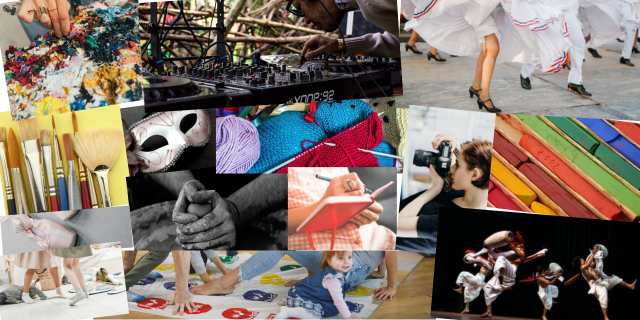The Government has set out new plans to grow the creative industries and support a million new jobs, in a priority sector for economic growth. Plans include growing creative clusters across the UK, building a highly skilled workforce and maximising the positive impact of the creative industries on communities, the environment and the UK’s global standing.
While this support is very welcome, the sector faces multiple crises, from the cost-of-living crisis to standstill or reduced funding, and skills shortages. Creative workers are dealing with the cost-of-living crisis, meaning their low pay barely covers living expenses, pressure to take on/cover too much work, or lack of opportunities. Mental health is being severely impacted and many skilled creatives are choosing to take their skills to other sectors.
There is also a further crisis – arts provision within the education system. There has been a steep decline in arts provision in state schools over the last decade, whilst many private schools invest considerable resources in world-class facilities and teaching. Arts GCSE entries are down 40% since 2010, A’ levels in performing arts, music, drama, art and design are all down, and the rise of the Ebac, which excludes all arts subjects, means even less opportunity for many to study arts subjects.
At degree level, there has been a major fall in the number of students studying humanities subjects, around 40,000 over the last decade. Last summer saw some arts and humanities degree courses closed, including those at Wolverhampton and Roehampton, and a likelihood of future closures. Stuart Croft, Vice-chancellor of Warwick University’s comments on why this is a mistake makes compelling reading.
In the Budget 2020, Rishi Sunak promised around £25,000 a year Arts Premium for secondary schools to invest in funding arts programmes and activities. It was to start in September 2021, then it was part of the Spending Review completed in October 2021. Since then, there has been silence.
But it is not just educational funding that is needed, the government needs a more enlightened attitude to studying creative subjects. Students (and their families) will not commit their lives to study and careers sold as second class. From the dismissive attitude towards studying non-STEM subjects and the underlying message that non-STEM study leads to lower-paid jobs, to the 50% funding cut to the high-cost subsidiary in 2021, to the disastrous “Fatima” advertisement on re-skilling dancers, the government seems to have sent out a message that studying or working in the creative sector is a less worthy, less skilled second class job.
Without a strong creative provision within the education system, support for studying arts subjects at Year 11 and beyond, and for that education to be respected and rewarded, the government can not hope to have the well-trained, highly skilled talent the creative sector needs to grow.
However, creative provision in education is way more than educating the creatives of the future. It is about empowering the humans of the future. As the workplace and wider society undergo unpredictable transformations, the essential skills of the future will be those such as problem solving, teamwork, adaptability, empathy and communication skills. Skills that are key components of a creative education. If the government fails to put creativity at the centre of education, it will not be just the next generation of creative workers lost, but the next generation of workers, the next generation of humans. How will that support economic growth and a fairer society?

One comment on “Future creatives, future humans.”